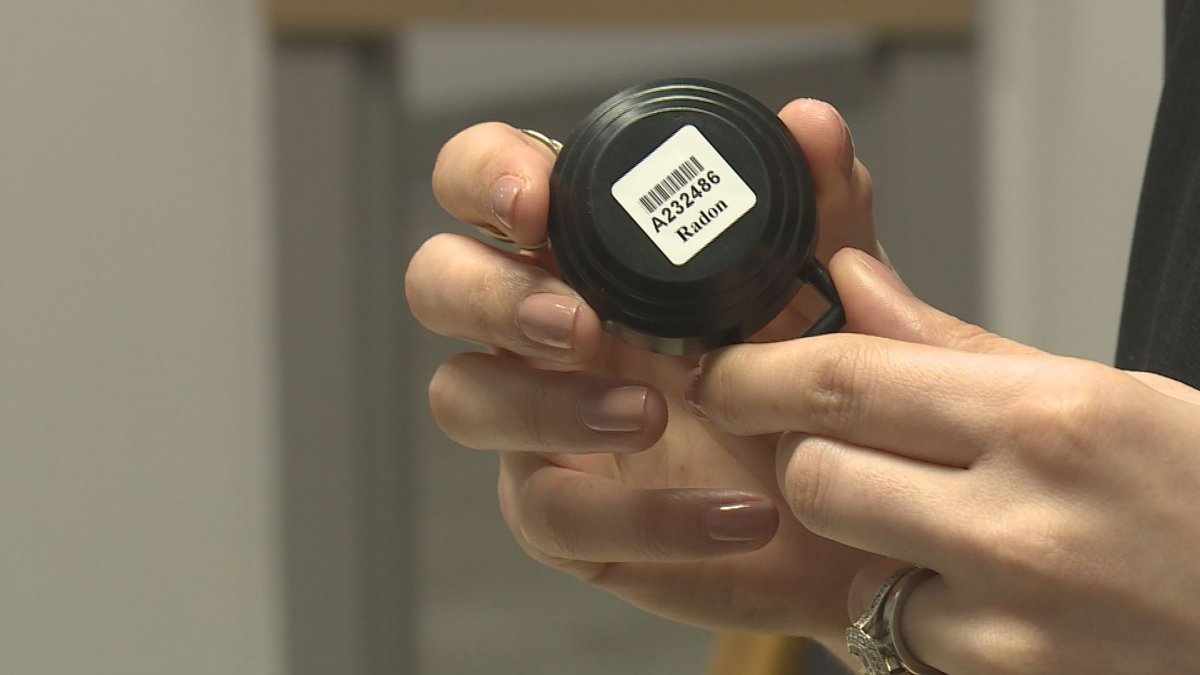If you’re looking to test for radon in your home, a short-term test isn’t the way to go, according to new research from the University of Calgary.

Researchers have found that the “only reliable way to measure exposure” in your home is with a 90-day test kit.
“Radon gas levels can fluctuate wildly day-to-day,” assistant professor Dr. Aaron Goodarzi said.
“Short term tests can give a false sense of alarm, or worse, a false sense of security as they cannot precisely predict long term exposure.”
As part of their research, experts put the two different tests — a long-term, 90-day and short-term, five-day test — in the same homes during the summer and winter months.
“Findings showed the short-term kits were imprecise up to 99 per cent of the time when compared to a long term test,” the university said.
Radon is a colourless, odourless and naturally-occurring gas that is the Number 1 cause of lung cancer in non-smokers, according to Health Canada. The gas can build up in homes and reach dangerous levels.

Get weekly health news
Health Canada also recommends people use long-term test kits in their homes.
Also jumping on-board with the new research is the Real Estate Council of Alberta (RECA), which Goodarzi has been working with to educate realtors on why they shouldn’t use short-term radon test kits when selling homes.

“RECA is appreciative of the assistance provided by Dr. Goodarzi in the development of education enabling real estate professionals to advise buyers and sellers to take radon into consideration during the purchase and sale of a home, in the absence of reliable short-term testing,” director of education programs, Joseph Fernandez said.
“All real estate professionals have completed radon-related education and new professionals will be required to complete it before entering the real estate profession.”
Prairie residents ‘second-highest radon exposed population on Earth’
According to the university, people living in the Prairies have some of the highest levels of radon exposure in the world.
That’s leading scientists and physicians from all across Canada to recruit people from all over the country to participate in their Evict Radon research project, aimed at getting as much data as possible to “understand and ultimately defeat Canada’s exposure to the radon problem.”
“We need to know exactly what factors influence high and low radon in Canadian homes,” Goodarzi said.
“It’s not just in the Prairies, we know of high concentrations in areas throughout the country. This is easily one of the most preventable forms of environmentally-caused cancer.
“We have already learned so much from the work we’ve done in Alberta and Saskatchewan to test for and mitigate radon. We plan to build on that.”


Comments